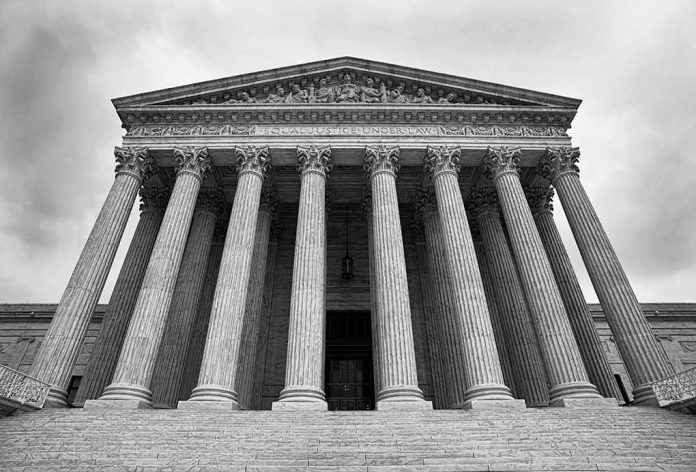
Arizona Supreme Court rejects ACLU’s petition to extend mail-in ballot deadline, citing lack of evidence for voter disenfranchisement.
At a Glance
- ACLU and other groups sought to extend the deadline for fixing mail-in ballot issues
- Over 250,000 mail-in ballots had not been verified by signature as of Friday evening
- Arizona Supreme Court found no evidence of voter disenfranchisement
- All counties reported making reasonable efforts to notify voters of signature inconsistencies
- Over 2.3 million ballots were cast by mail in Arizona during the 2024 election
ACLU’s Emergency Petition Denied
In a decisive move, the Arizona Supreme Court rejected an emergency petition filed by the American Civil Liberties Union (ACLU) and other voter rights groups to extend the deadline for fixing issues with mail-in ballots. The petition, which sought to allow voters up to four days after being notified of a problem to correct their ballots, was denied due to a lack of substantial evidence showing that such issues would lead to widespread disenfranchisement.
The court’s decision came amid concerns over the high number of unverified mail-in ballots, particularly in Maricopa County. Over 250,000 mail-in ballots had not been verified by signature, raising questions about the potential impact on election results.
Arizona's Supreme Court rejected ACLU's request to extend the ballot curing deadline. Here's why. https://t.co/MxIU3EnYbN
— FOX 10 Phoenix (@FOX10Phoenix) November 11, 2024
Court Finds No Evidence of Disenfranchisement
In its ruling, the Arizona Supreme Court emphasized that there was no concrete evidence of voter disenfranchisement. The court stated, “Thus, the Court is not presented with evidence that any voters will be prevented from curing a defective ballot by today’s 5:00 p.m. deadline. In short, there is no evidence of disenfranchisement before the Court.”
This decision was met with approval from various Republican figures. Harmeet Dhillon, representing the Republican National Committee (RNC), expressed satisfaction with the outcome, stating, “ACLU lost its hail mary last minute lawsuit to extend the cure period for mail ballots lacking signature matches. Ballot curing is now over in Arizona. Let’s finish the tabulation and wrap this up.”
Counties Report Timely Voter Notification
A key factor in the court’s decision was the reported efforts by Arizona counties to notify voters of any issues with their mail-in ballots. Election officials in eight of Arizona’s 15 counties confirmed that all voters with inconsistent signatures were notified and given a chance to respond. This diligence in voter communication played a crucial role in the court’s assessment that the existing deadline was sufficient.
Despite the court’s ruling, the ACLU of Arizona continued to encourage voters to check their ballot status and pledged to continue advocating for all votes to be counted. The organization’s commitment to voter rights remains steadfast, even as they face this legal setback.
Implications for Arizona’s Election Results
Over 67,000 early ballots remained unprocessed, with the majority from Maricopa County. This large number of outstanding ballots underscores the importance of efficient and accurate ballot processing in determining the final election results. The Associated Press has already announced Donald Trump as the winner of Arizona over Kamala Harris, while the Senate race between Rep. Reuben Gallego and Republican candidate Kari Lake concludes as well.
The Arizona Supreme Court’s decision to maintain the existing deadline for fixing mail-in ballot issues reflects a balance between ensuring voter participation and maintaining the integrity and timeliness of the election process. As the state continues to count the over 2.3 million mail-in ballots cast in the 2024 election, the focus now shifts to completing the tabulation process and finalizing the results in accordance with established election laws.
Sources:
ACLU asks Arizona Supreme Court to extend ‘curing’ deadline after vote-count delays
Arizona Supreme Court declines ACLU’s request to extend ballot curing deadline
Arizona Supreme Court Declines Emergency Request to Extend Mail Ballot Deadline













